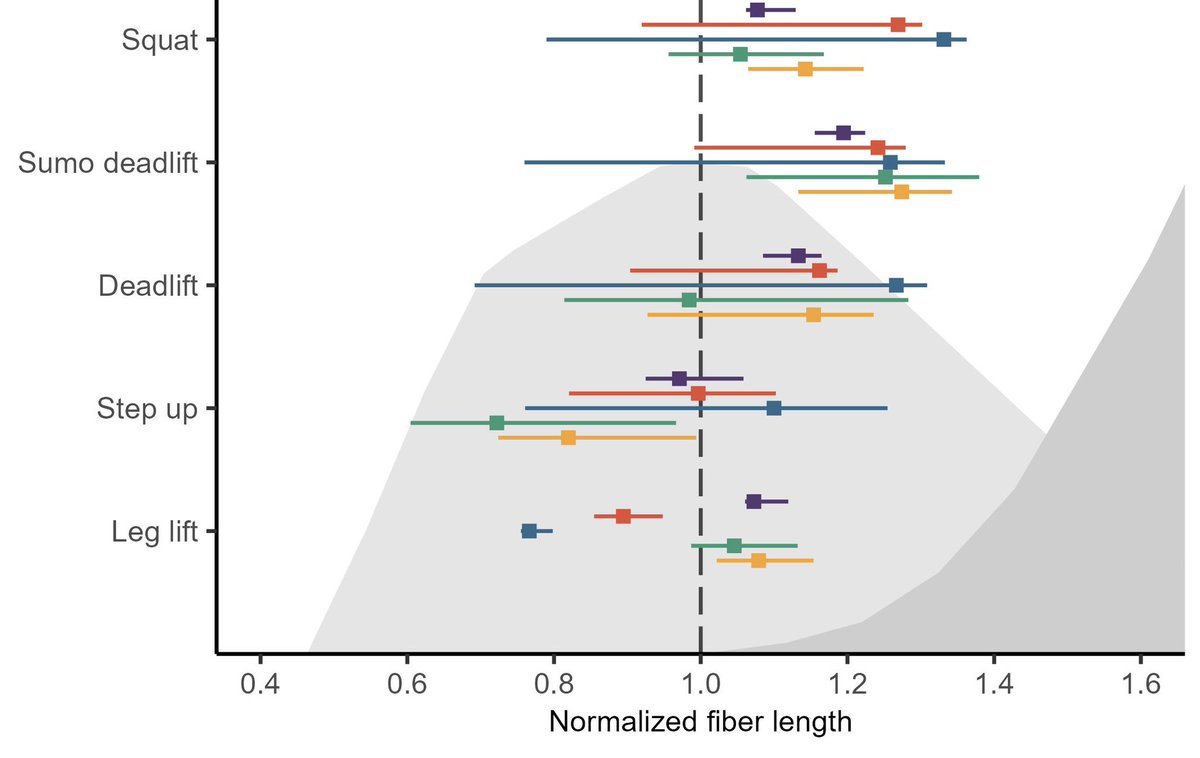
Tyler Collings
@TylerCollings3
Followers
1K
Following
947
Statuses
481
PhD, Researcher at Griffith University, biomechanics and injury prevention.
Gold Coast, Queensland
Joined December 2017
New research on OpenCap validity and reliability compared to optical motion capture from @YuriLimaPT In this study, we focused on tasks relevant to injury & performance testing. Findings in the thread ⬇️ Full article link: #markerless #mocap
1
4
25
@GregLehman @avigotsky I agree - from the point of view of external moments, there may be some ‘hidden’ coactivation to compress the spine, oppose posterior shear, or maybe create a posterior pelvic tilt moment? - but surely can’t be similar to a loaded trunk flexion movement
0
0
1
@GregLehman @avigotsky Seen any good EMG studies for those exercise? May need surface + fine wire to get the full picture?
3
0
2
RT @PhysioNetwork: 🦵 Can targeting specific muscles really help prevent ACL tears? 🤔 While promising, it's no perfect solution—ACL injury…
0
9
0
RT @LemireJoe: NEWS: NBA is launching a league-wide biomechanics program via @sbj @QualisysMocap @breakawaydata @B…
0
28
0
RT @PhysioNetwork: 💡 @MBourne5 and @TylerCollings3 Teach: Mastering ACL Injury: From Incidence to Injury Prevention ⏳ Coming soon to Mas…
0
4
0
@SandCResearch Assuming that muscle activation itself is a good predictor of muscle growth (unsupported) and that dynamic exercises performed at sub maximal intensity follow the neuromechanical matching principle (remains to be seen)
2
0
14
Makes sense. Both exercises are within the active-length curve. Torque profile may differ, but total/peak muscle force could be similar. Somehow need to get the mid delt into longer lengths to generate passive force & increase hypertrophy? Nice job @StianLa07849895
Our new study, now in preprint, showed dumbbell and cable lateral raises elicit similar hypertrophy in the middle deltoid in trained men and women over 8 wks. Both modes appear to be viable options. Kudos to @StianLa07849895 for spearheading the project💪
0
0
4
RT @_JSAMS: Most Read Articles 🌟 Check out the #most #read #articles for this month. 👉 @FionaWilsonf
https://t.c…
0
2
0
Nice. Considering the force-length operating range of an exercise might be useful for hypertrophy. The second part to consider is when long lengths correspond with high external joint torques - otherwise you’re just stretching. Combined active + passive = optimal stimulus?
Really enjoyed this paper on the effect of range of motion on hypertrophic responses. Anyone curious to learn about the length-tension properties of individual muscles should give this a read.
2
1
10
RT @dr_jump_uk: Myths of S&C: Part 2 Misunderstanding the force-velocity relationship. Although almost all S&C coaches know Newton's seco…
0
12
0
@GregLehman @Alex_Peters_ @MeredithChaput @LenMacPT @ckuenze As someone who rupture a 2nd ACL running in straight line, I highly recommend sticking to seated sports 😄
2
0
3
@GregLehman @Alex_Peters_ @MeredithChaput @LenMacPT @ckuenze Any position which increases external loads about the knee, increases transfer of load to the ligament, or reduces ability of muscles to support the ligament. e.g. flat foot ground contact, extended knee, lateral trunk flexion & rotation
1
0
3
@Alex_Peters_ @GregLehman @MeredithChaput @LenMacPT @ckuenze @JasonAvedesian @Emory_SPARC Agree - biomechanics is the output of motor control. I don’t understand why they get stated as one or the other.
0
0
1
@Alex_Peters_ @GregLehman @MeredithChaput @LenMacPT @ckuenze Problem is, the majority of ACL loading comes from the quad muscles. Strong athletes aren’t immune to the occasional “risky” position. My working theory: Reiniury = bad body/joint position + high force capacity + sub-optimal neural control
2
0
0
Sounds like the making of a Fad.. Be interesting to see if dyno testing for motivation & buy-in alone is enough to justify time & costs over long term.
Before saying we NEED dynamometers in practice we need to answer: 1. Does strength mediate recovery? aka: if you don't get stronger it is much less likely your pain and function will improve 1/
1
0
1
@lahti_johan @ActivateGlutes Has anyone tied in F=ma yet? F-V is a characteristic of muscle. But for systems (collection of bodies + muscles) external force accelerating the COM explains your observations. More mass, more force required. Greater acceleration, more force required.
0
0
2





